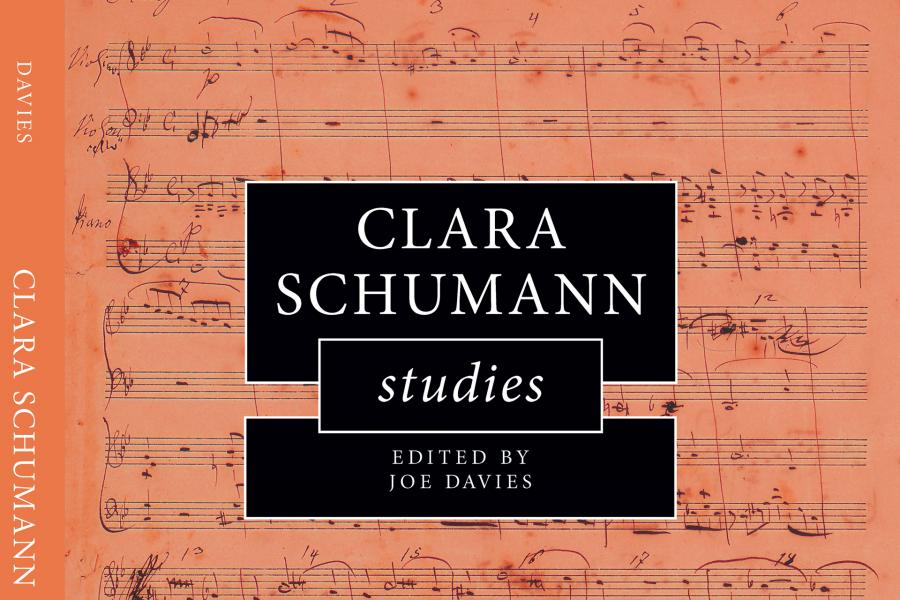Launching Clara Schumann Studies, Celebrating Women in Music
On March 1, 2022, in association with the Women in Global Music Network, the Department of Music was pleased to host the online launch of Clara Schumann Studies, a collection of essays edited by Dr. Joe Davies for Cambridge University Press. The event, attended by an international contingent of delegates, provided opportunities to reflect on recent developments in the study of women in music and look ahead to the next stages in this area.
Launching the book was a panel of guest speakers – Professor Nina Scolnik, Professor Valerie Woodring Goertzen, and Sarah Fritz – who responded to the essays in light of their pioneering contributions across scholarship, performance, pedagogy, social media and fiction. All of this was beautifully interlaced with a performance by Professor Lorna Griffitt of Clara Schumann’s Romance in B major, Op. 5 No. 3, and her B minor Romance – pieces that evoke multiple layers of meaning through their poignant mixture of joy, optimism, memory, and nostalgia.
“One of the most enriching aspects of working on Clara Schumann Studies,” writes Dr. Davies in a blog post for Cambridge University Press, “was the opportunity to rethink and listen afresh to Schumann’s rich and varied contributions to musical culture in the nineteenth century and beyond. Bound up with the project, the first in the Cambridge Composer Studies series to address a woman, was an enticing invitation to open out the idea of what a composer could be and do, in line with the recent calls for more diverse and inclusive histories of music.”
A vivid sense of how Schumann inspires new ways of thinking about musical creativity was apparent throughout the launch, where the intersection of words and music sparked questions ranging from matters of programming and promoting Schumann’s music, to her legacy as a pianist, pedagogue, and role model more generally.
For Professor Nicole Grimes, who contributed a chapter to the book, “one of the most enriching and exciting aspects of this book launch was to witness the manner in which Clara Schumann’s creative self—as evidenced in this very launch—is situated at the most stimulating intersection between composition, performance, pedagogy, improvisation, and German literature and song.”
Equally inspiring is the fusion of technical detail and expressive imagery within Schumann’s compositional world – an aspect of her creativity that is ripe for further exploration. As Professor Griffitt observes, “in my work researching, practicing, analyzing, performing, teaching, and recording the music of Clara Schumann, I have become increasingly in awe of and fascinated by her genius in voice leading, the complexity of structures, innate lyricism, and harmonic sophistication. As is the case with all great artists, there is the element of infinity in her music. The book launch of Clara Schumann Studies was a wonderful vehicle for bringing together scholars and performers, consolidating and giving voice to a wide range of exciting perspectives on the work of this pioneering composer.”
All this points towards an understanding of the ways in which Schumann contributed to – and invigorated – nineteenth-century compositional practice. In the words of Professor Scolnik, “what moves me most about Clara Schumann’s expressive language is the intimate interaction of voices, chromatic coloring, long flowing sequences, ambiguous cadences, rhythmic stresses on weak beats, and the inventive ways Schumann propels her phrases forward. These qualities bring a fresh dialect to the many voices of romanticism and inspire me to find new ways to perform and teach her music.” Adding to this; Professor Scolnik writes, “the launch confirmed that there is great potential for meaningful exchange between scholars and performers. Though we may access Schumann’s work from different entry points, these conversations inevitably enlarge our understanding of the music. Clara Schumann Studies offers us an indispensable resource through its breadth and diversity and its relationship to the broader study of women in music.”
Altogether the launch – in its digital format – provided a welcome opportunity to archive the ways in which multiple facets of the Department of Music at UCI come together in collaborative, cross-disciplinary projects of this kind.
The launch can be viewed here.

